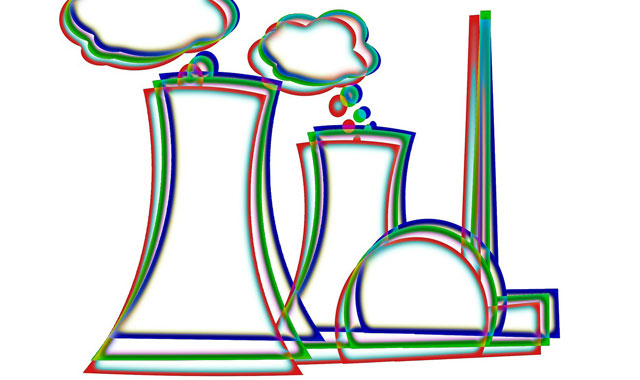
Nuclear energy in South Africa is a hotly contested issue — so much so that a court recently ruled against the government’s plans to issue a contract for the construction of eight new nuclear power stations.
The ruling appeared to have delivered a significant blow to President Jacob Zuma, and those who support him, who had set their sights on immediate nuclear expansion. The court’s decision was met with jubilation by those opposing the nuclear plan.
The expectation was that the government would appeal the decision. It didn’t, but this shouldn’t be read as a shift in its thinking.
Energy minister Nkhensani Kubayi made it clear after the court ruling that, while there would be no appeal, the government remained fully committed to nuclear expansion, and was planning to initiate a new process without delay.
This signals a realisation by government that an appeal would have little chance of success, and that a lengthy court process would tie up the parties in legal cases for months or even years. This would delay a nuclear build even further.
The minister has made it clear that the government is not giving up on its push for the controversial nuclear plan. But it has realised the process must start from scratch. This is the clearest indication yet that Zuma intends launching the nuclear build before his term of office ends in 2019.
Adding to fears that the government isn’t giving up the fight was the surprise reinstatement of Brian Molefe as CEO of the country’s power utility, Eskom. Molefe left the job under a cloud six months ago. His reappointment led to immediate and widespread public outrage. Many have interpreted his return as beefing up the quest for nuclear.
Molefe’s return, however, isn’t as critical to the nuclear project as imagined, as Eskom has maintained his pro-nuclear stance in his absence.
What’s more important is that it’s clear that contestation around the future of South Africa’s energy sector will continue unabated. This despite the president having been severely weakened in recent months, and with it the power of the pro-nuclear lobby supported by his faction.
The high court decided that three international intergovernmental nuclear agreements and two ministerial proclamations to kick-start the establishment of new nuclear power plants were unconstitutional and illegal.
The order nullified an agreement in which South Africa had committed to appointing Russian agency Rosatom to build new nuclear plants. The agreement had allocated the build to Rosatom without costs being established or a competitive tender process.

The court also negated the government’s decision to delegate nuclear power procurement to Eskom and ruled that the country’s energy regulator was compelled to engage in meaningful public consultation before any major development can proceed.
By saying that it will restart the process from scratch, the government came to the obvious conclusion that it could only achieve its objective without the double albatross of the Russian agreement and the short-circuiting of consultative processes hanging around their head.
Nuclear isn’t needed
The drive to develop 9,6GW of new nuclear energy-generating capacity is the result of a governmental Integrated Resource Plan for electricity drafted in 2010. But the plan is now completely outdated. It overestimated electricity demand growth, and did not anticipate the dramatic drop in the cost of renewable energy technology, particularly solar photovoltaics.
The latest draft, published in 2016, does not foresee any need for nuclear for the next 20 years. Studies have also shown that a larger renewable energy investment is more feasible in South Africa than was previously thought.
Nuclear’s main drawback is the excessively high costs. It has been widely argued that this technology is unaffordable.
So why the inexplicable urgency to drive this highly expensive programme?
One answer is that it shows there’s massive outside pressure influencing the push. The influence over the president enjoyed by politically connected business people, in particular the Gupta family, suggests that local oligarchs might be manipulating the president.
It is, however, probable that the dominant source of the pressure on the president is Russian interests, in particular President Vladimir Putin. There is no proof, only speculation, about the high degree of influence the Kremlin has over the South African head of state. What is known is that Zuma endorsed the nuclear agreement concluded without due process with Russia in 2014 after a private meeting with Putin in Moscow.
What happens next
In line with the ministerial announcement, expectations are that new intergovernmental nuclear cooperation agreements will be concluded and tabled in parliament before the end of this year. The Russian agreement is likely to be aligned with agreements that have been signed with France, China, South Korea and the US, removing all specifics that afford Rosatom an advantage. Despite this, perceptions will remain that the Russians have been promised the nuclear build.
Even so, and despite the president’s current efforts, new nuclear power plant developments remain improbable in the next decade. This is because the publication of the final energy plan document — expected in the coming months — and any adjustments to the draft in favour of nuclear are likely to be vigorously challenged in the now mandatory consultative process. This will make it almost impossible to initiate a nuclear build before 2019.
The political terrain will become even trickier after that as the country will go to the polls in a general election in 2019. The ruling party won’t be able to afford being associated with a controversial nuclear agenda during an election year.![]()
- Hartmut Winkler is professor of physics, University of Johannesburg
- This article was originally published on The Conversation

